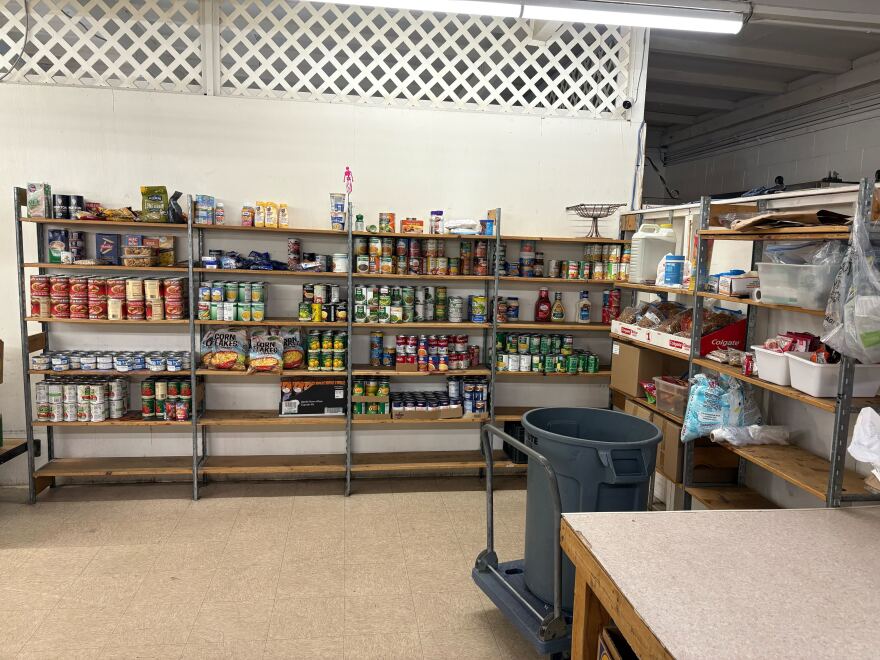SANGER, Calif. – Nearly two weeks after the federal government shutdown ended and safety net benefits were restored, many social service organizations in the San Joaquin Valley that were inundated with requests for assistance are still struggling.
That includes small food pantries operated by churches within the Catholic Diocese of Fresno, like Father Hannibal House run by St. Mary’s Parish in Sanger.
Amanda Luperena, one of the center’s managers, says the need for food surged when the federal government temporarily withheld food stamps from recipients during the shutdown that lasted 43 days.
“The government shutdown made it increase to where we hardly had anything to give anybody – where our shelves just went empty,” she said.
And that demand hasn’t slowed even with the government back open. She estimates that the pantry is serving hundreds more people per month than before the government shutdown in early fall.
Many pantries are now preparing to assist families for the Thanksgiving holiday and Christmas. According to Luperena, the pantry had received donations of 150 chickens earlier in November – and they went fast.
“We actually gave out all 150 in total and there was not enough, still more people here to get chickens but they didn't get any…We still give them what we have,” she said.

Father Hannibal House is also a thrift store. Profits from those sales – which don’t charge sales tax – go directly to the food pantry part of the operation.
Most of the food is donated by Walmart or bought at low prices from the Central California Food Bank.
The Catholic Diocese of Fresno includes two other parish-run food pantries in Visalia and Hanford, as well as three food pantries run by Catholic Charities in Fresno, Bakersfield and Merced.
Diocese spokesperson Chandler Marquez said most of those sites are facing a surge in demand.
Luperena, from Sanger, said donations are always welcome from the community.
“We're actually praying that someone has a heart out there, that you look through your cabinets and please donate some cans,” she said. “Or, you can buy stuff and donate it.”


